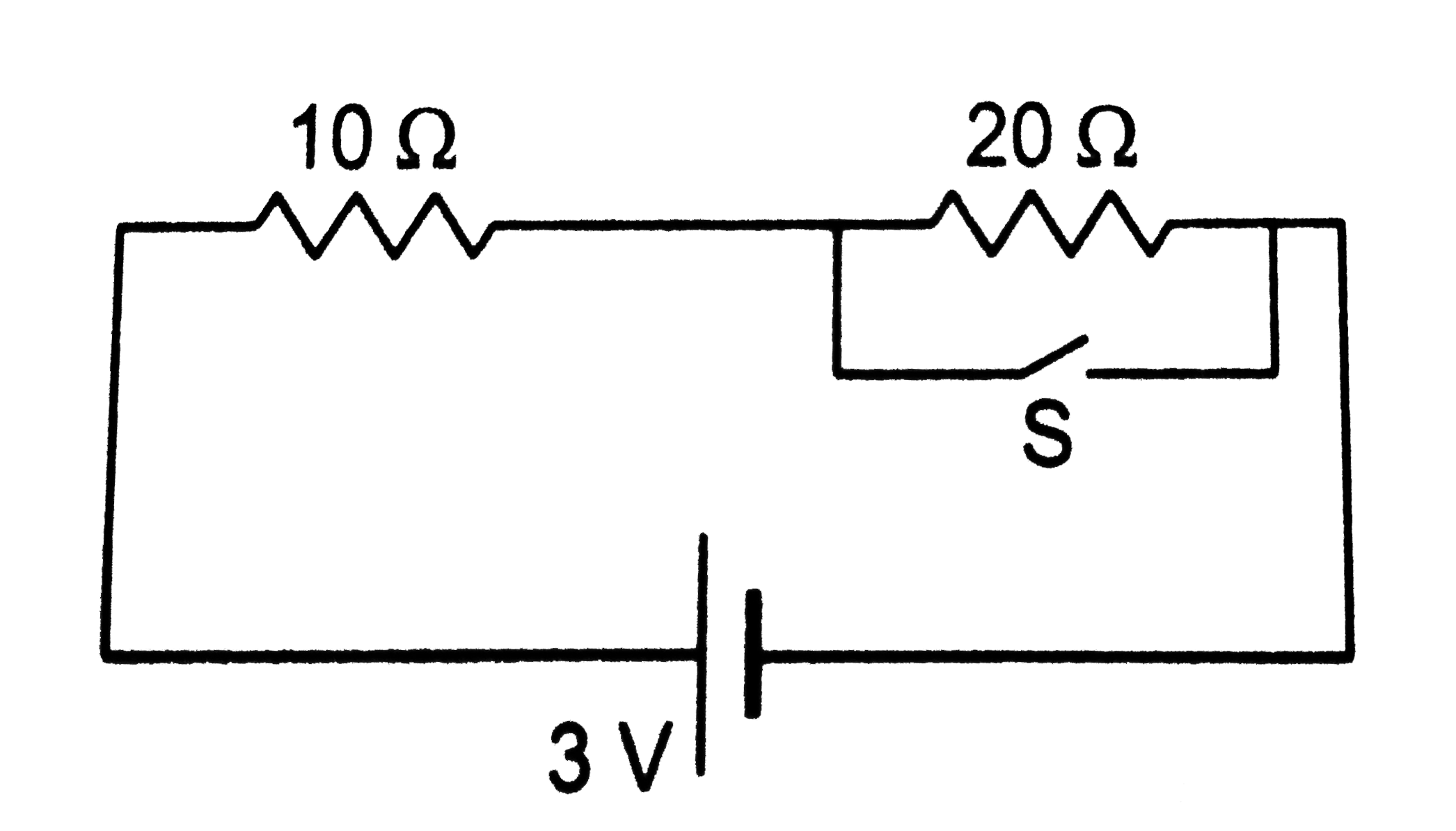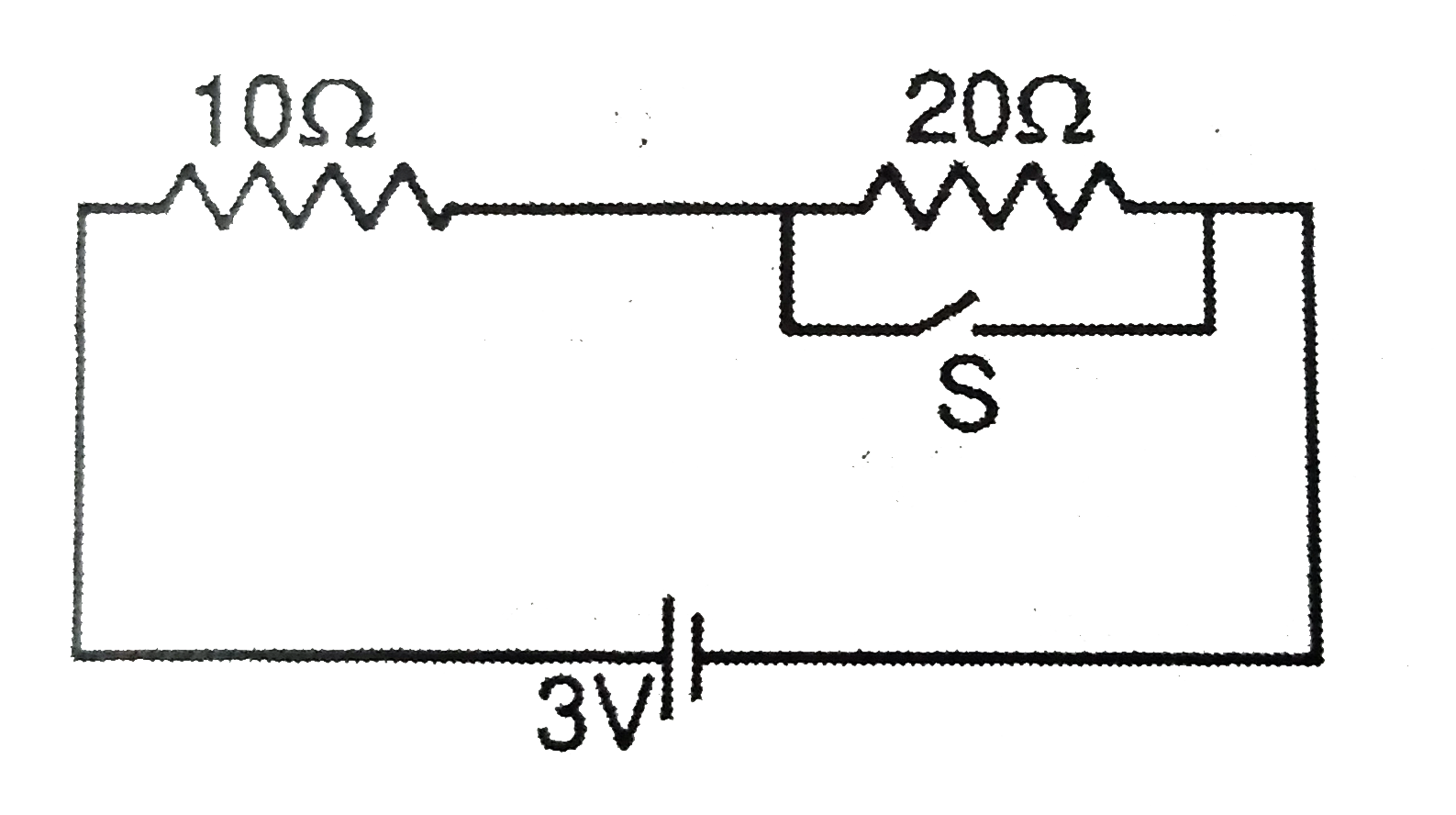Consider the situation shown in figure.The wire CD has a negligible resistance and is made to slide on the three rails with a constant speed of 50cm/s.Find the current in the 10Ω resistor when the switch S is thrown to (a) the middle rail (b)bottom rails.(Neglect resistance of rails)
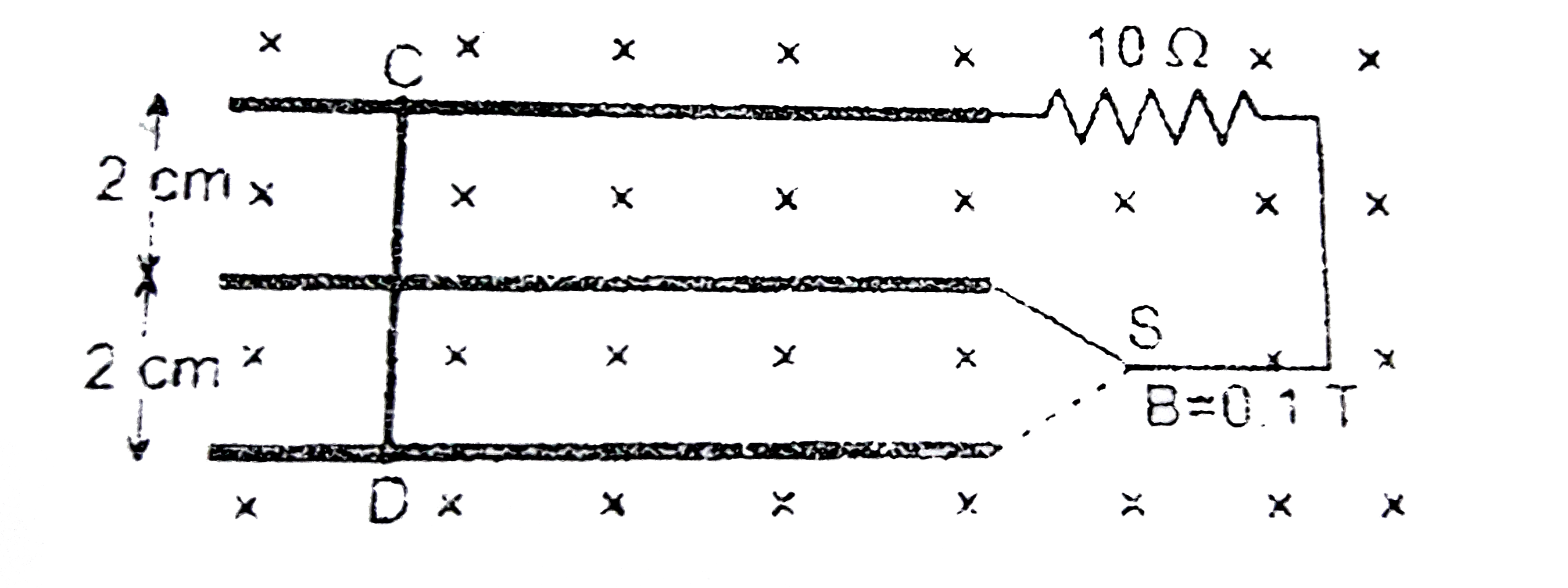
The correct Answer is:A.).1mA b.).2mA
Step by step video, text & image solution for Consider the situation shown in figure.The wire CD has a negligible resistance and is made to slide on the three rails with a constant speed of 50 cm//s.Find the current in the 10 Omega resistor when the switch S is thrown to (a) the middle rail (b)bottom rails.(Neglect resistance of rails) by Physics experts to help you in doubts & scoring excellent marks in Class 12 exams.
Updated on:21/07/2023Topper's Solved these Questions
- ELECTROMAGNETIC INDUCTIONBOOK - RESONANCECHAPTER - ELECTROMAGNETIC INDUCTIONEXERCISE - Exercis-1 PART 2
51 Videos
- ELECTROMAGNETIC INDUCTIONBOOK - RESONANCECHAPTER - ELECTROMAGNETIC INDUCTIONEXERCISE - Exercis-2 PART 1
15 Videos
- ELECTROMAGNETIC INDUCTIONBOOK - RESONANCECHAPTER - ELECTROMAGNETIC INDUCTIONEXERCISE - Problem
12 Videos
- ELECTRODYNAMICSBOOK - RESONANCECHAPTER - ELECTRODYNAMICSEXERCISE - Advanced level problems
31 Videos
- ELECTROSTATICSBOOK - RESONANCECHAPTER - ELECTROSTATICSEXERCISE - HLP
39 Videos
Similar Questions
Knowledge Check
Consider the situation shown Fig. There present a magnetic field B = 1 T which is perpendicular to plane of paper. The wire P2,Q2 are made to slide on the rails with the same speed 5cm/s. Find the electric current in the 19(Ω) resistance if
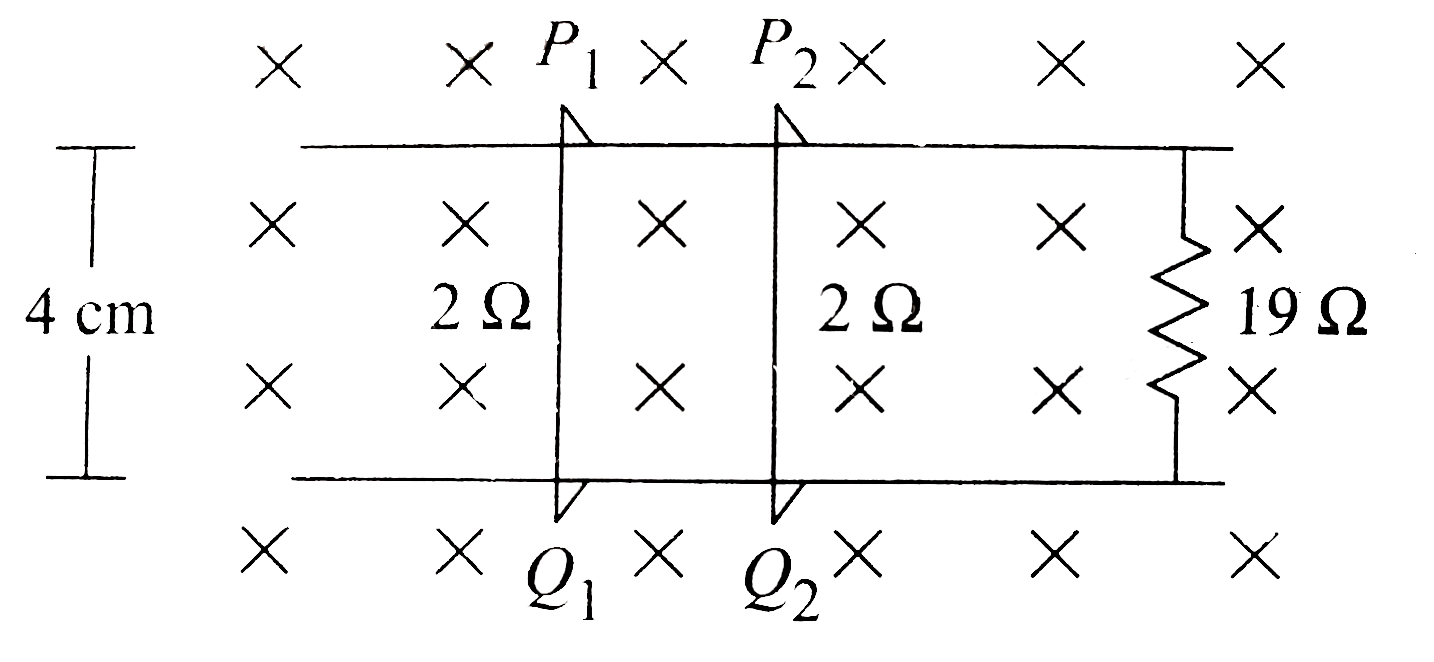
Both the wires move towards rightA0.2mAB0.3mAC0.1mADNone of theseConsider the situation shown in the figure. The wire Ab is sliding on the fixed rails with a constant velocity. If the wire AB is replaced by semicircular wire, the magnitude of the induced current will
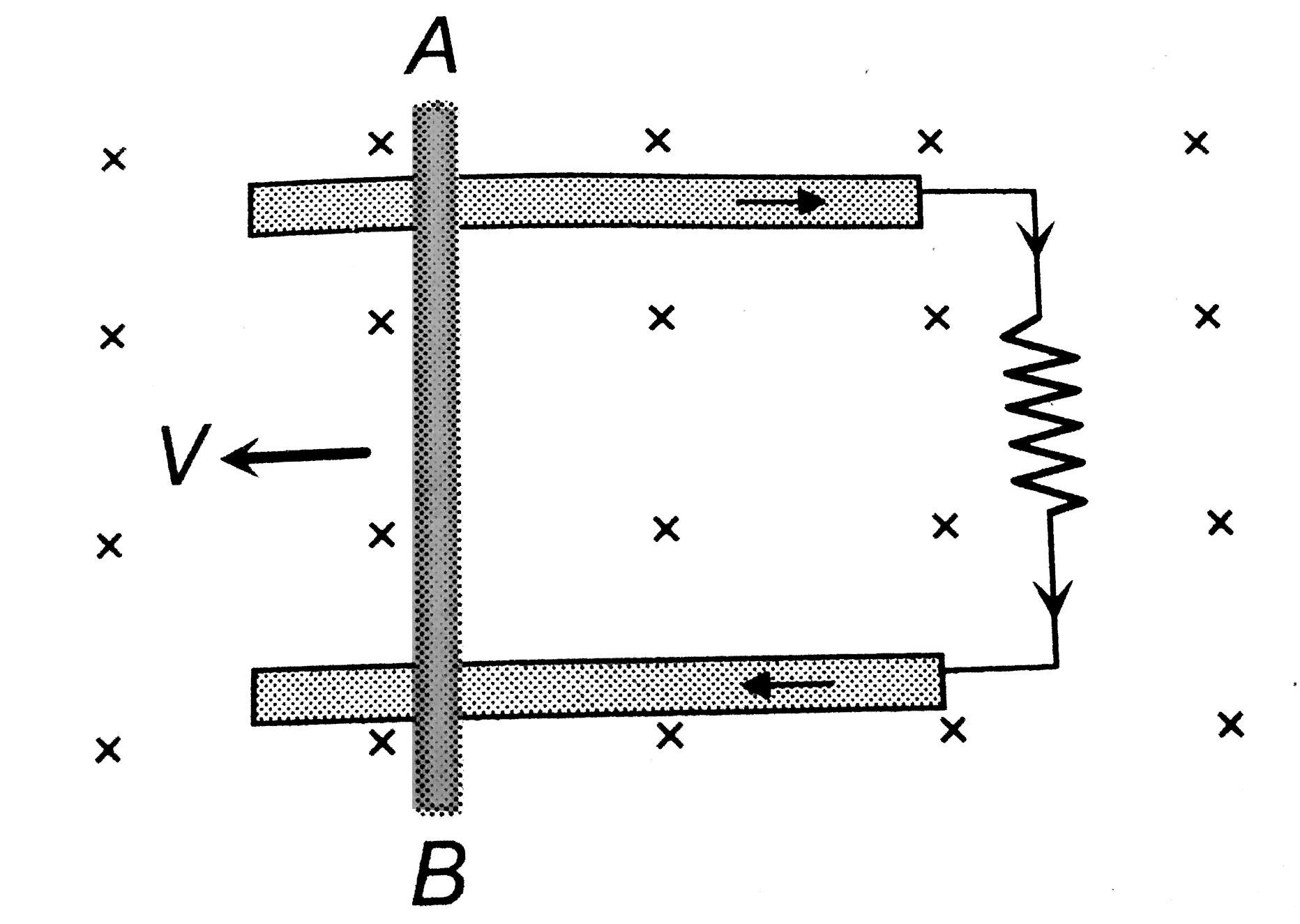 AIncreaseBRemain the sameCdecreaseDIncrease or decrease depending on wheather the semicircle bulges towards the resistance or away from it
AIncreaseBRemain the sameCdecreaseDIncrease or decrease depending on wheather the semicircle bulges towards the resistance or away from itIn the figure shown , the wires P1Q1 and P2Q2 are made to slide on the rails with same speed of 5cms−1. In this region a magnetic field of 1T exists. The electric current in the 9Ω resistance is :
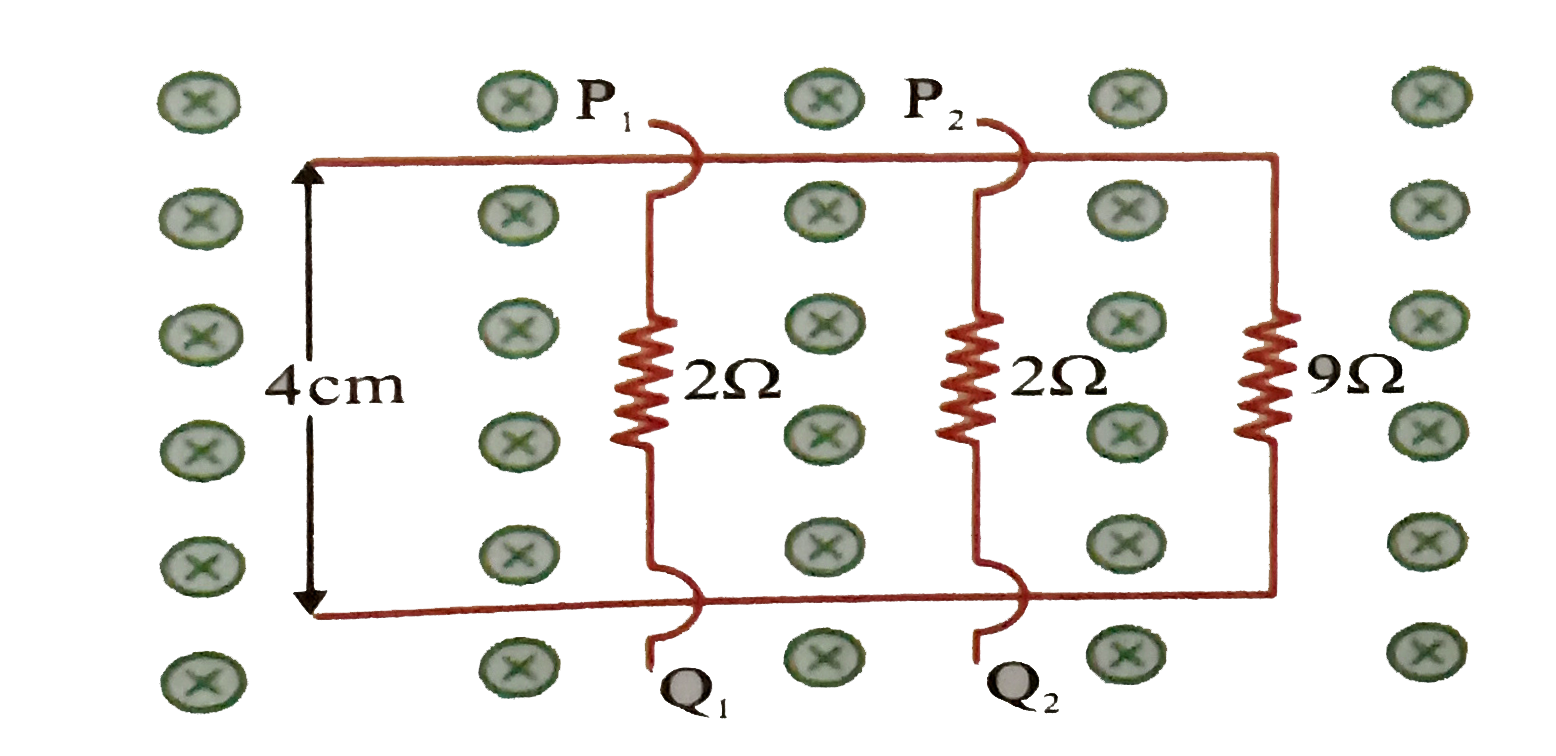 AZero if both wires slide towards leftBZero if both wires slide in opposite directionsC0.2mA if both wires move towards leftD0.2mA if both wires move in opposite directions
AZero if both wires slide towards leftBZero if both wires slide in opposite directionsC0.2mA if both wires move towards leftD0.2mA if both wires move in opposite directions
Consider the situation shown in the figure. The wire PQ has mass m , resistance r and can slide 0n the smooth, horizontal parallel rails separated by a distance l . The resistance of the rais is negiligible. A uniform magnetic field B exists in the reactangular region and a resistance R connects the rail outside the field region. At t=0 , the wire PQ is pushed toward right with a speed v0 . Find
(a) the current in the loop at an instant when the speed of the wire PQ is v
(b) the acceleration of the wire as this instant
(c) the velocity v as a function of x
(d) the maximum distance the wire will move
(e) the velocity as a function of time
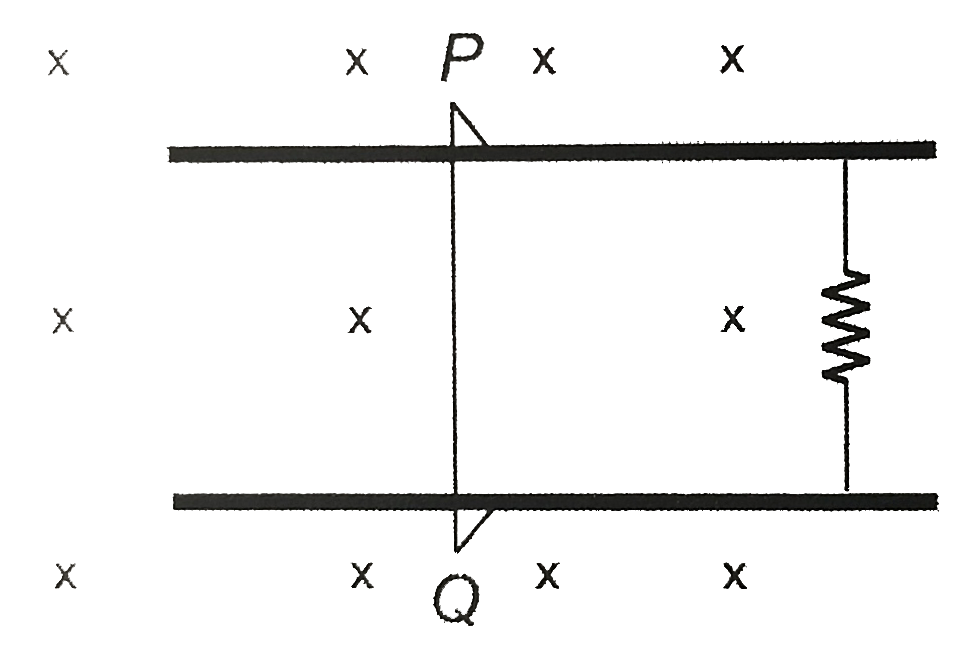
View SolutionThe given potentiometer has its wire of resistance 10Ω When the sliding contact is in the middle of the potentiometer wire, the potential drop across 2Ω resistor is :
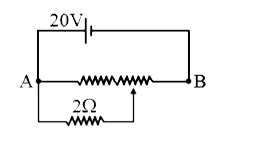
View SolutionIn the given figure, the wires P1Q1 and P2Q2 are made to slide on the rails with same speed of 5 cm s−1. In this region, a magnetic field of 1 T exists. The electric current in the 9Ω resistance is
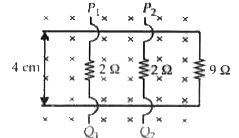
View SolutionIn the diagram shown, the wires P1Q1 and P2Q2 each of length 40cm are made to slide on the rails with same speed of 5m/s. In this region a magnetic field of 1T exists. The electric current in 9kΩ resistor is
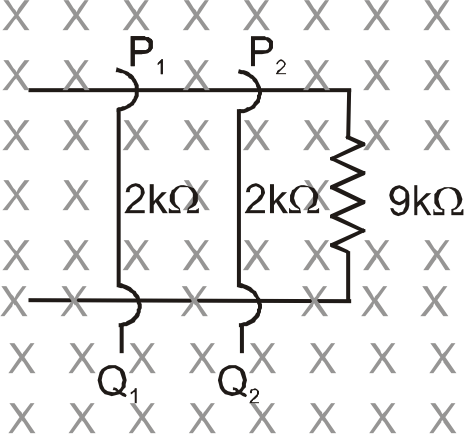
View SolutionA wire of length l, mass m and resistance R slides without any friction down the parallel conducting rails of negligible resistance . The rails are connected to each other at the bottom by a resistanceless rail parallel to the wire so that the wire and the rails form a closed rectangualr conducting loop. The plane of the rails makes an angle θ with the horizontal and a uniform vertical magnetic field of the inducetion B exists throughout the rregion. Find the steady state velocity of the wire.
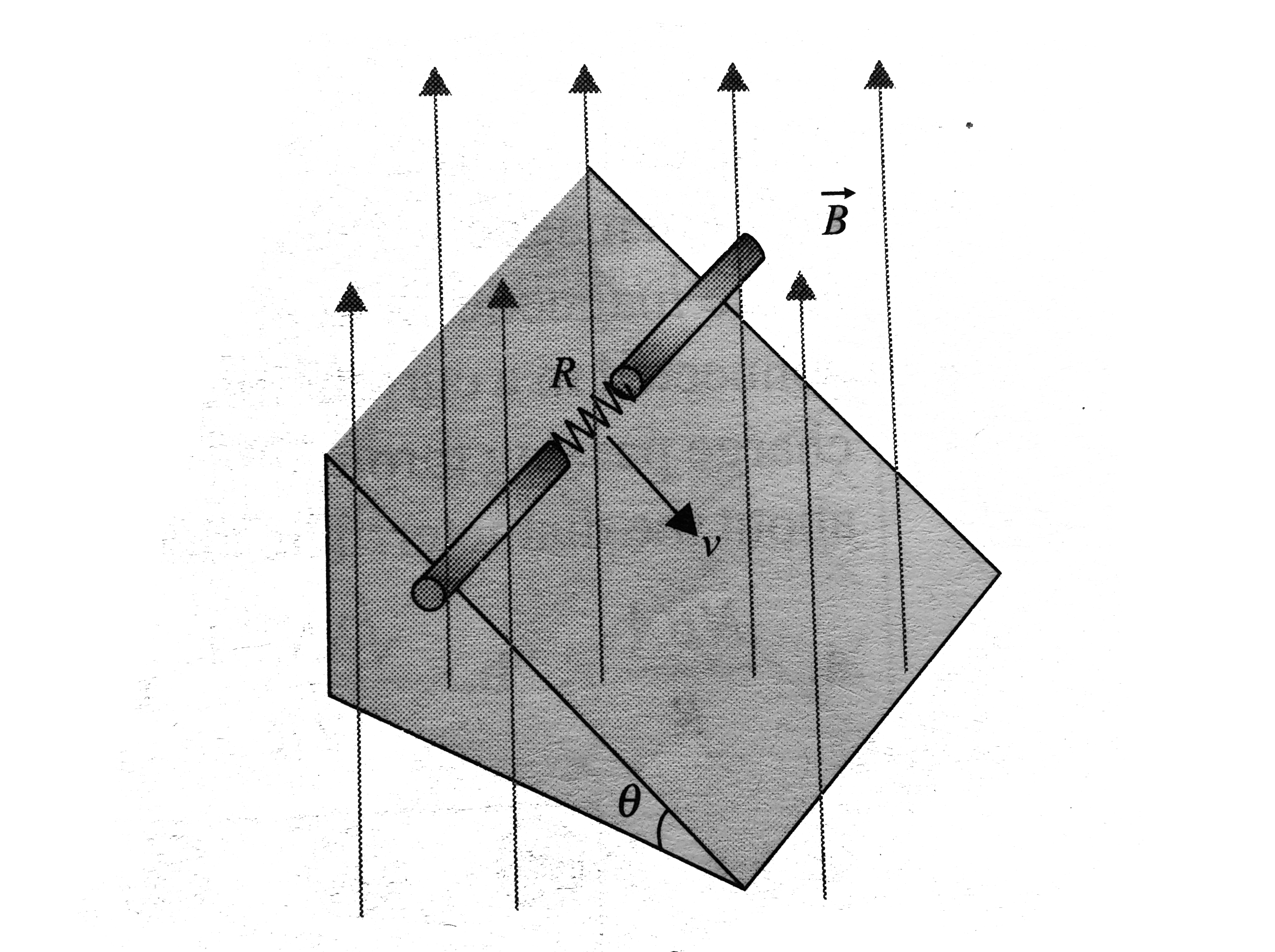
View Solution

